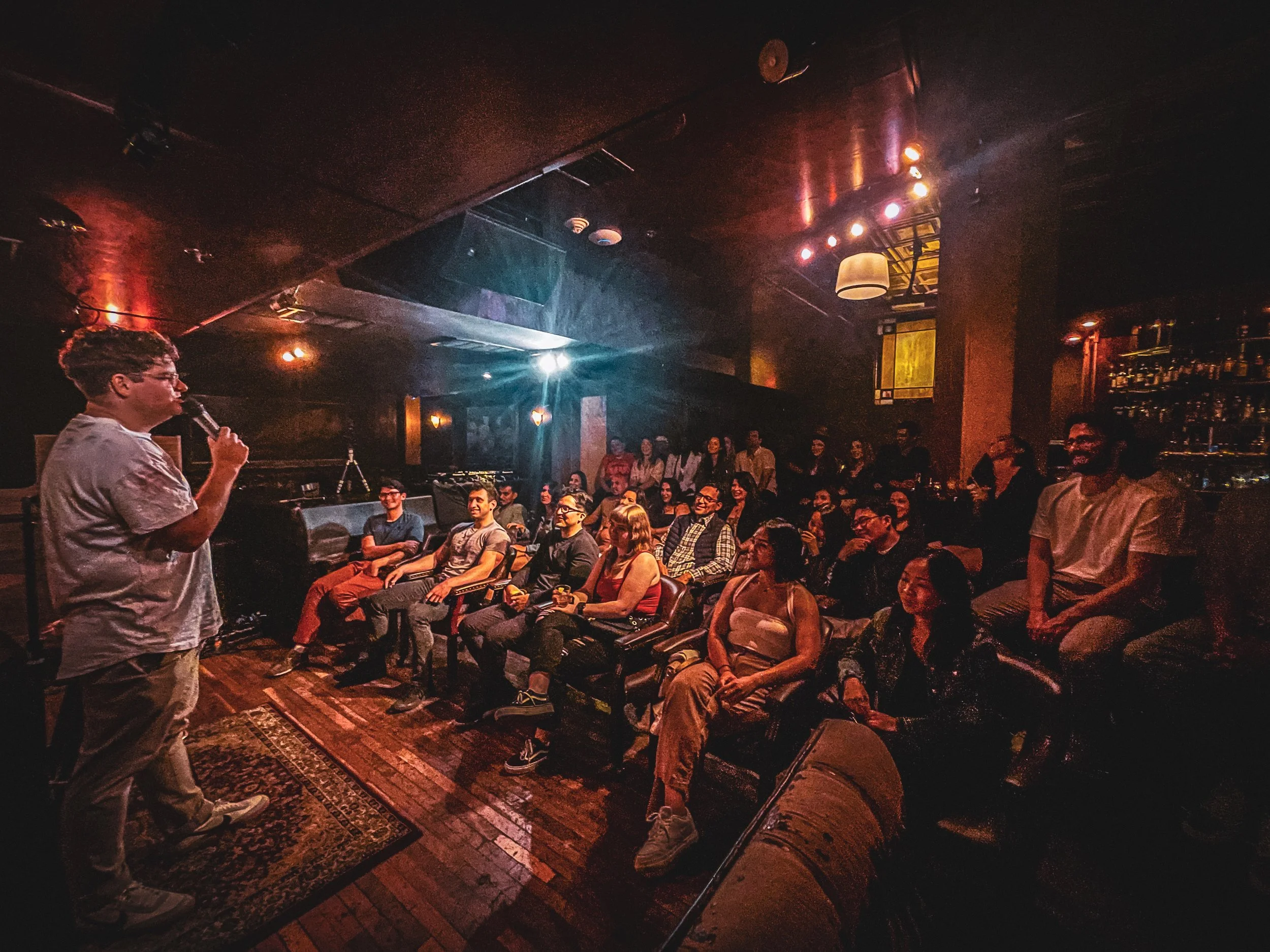The Setup is a comedy show that takes place at Citizen Public Market in Culver City. The show features up-and-coming comedians who are regulars on TV shows and featured in movies. Tickets are only $15, making it a great way to see world-class talent in a casual environment.
Citizen Public Market is a food hall with eight different restaurants, so you can enjoy a variety of cuisines before or after the show. The market also has a bar called Bohemian, which serves craft cocktails, beer, and wine.
The Setup comedy show takes place in the Events Room at Citizen Public Market. The room is large and airy, with plenty of seating. There is also a bar in the room, so you can get drinks and snacks during the show.
The Setup is a great way to enjoy a night of comedy in a relaxed and fun atmosphere. The food at Citizen Public Market is delicious, and the drinks at Bohemian are top-notch. And for only $15, you can't beat the price.
Here are the restaurants at Citizen Public Market that you can enjoy before or after the show:
Bar Bohemien: This bar serves craft cocktails, beer, and wine. It has a relaxed and inviting atmosphere, making it the perfect place to unwind before or after the show.
Goodboybob: This restaurant serves coffee, pastries, and sandwiches. It's a great place to grab a quick bite before the show.
Jolly Oyster: This restaurant serves fresh oysters and other seafood dishes. It's a great place to enjoy a light meal before the show.
The WEHO Sausage Co.: This restaurant serves sausages, burgers, and other comfort food. It's a great place to indulge before the show.
Bang Bang Noodles: This restaurant serves hand-pulled noodles in a variety of flavors. It's a great place to try something new before the show.
Go Go Bird: This restaurant serves fried chicken and other comfort food. It's a great place to share a meal with friends before the show.
Uoichiba: This restaurant serves dry-aged fish hand rolls and other Japanese cuisine. It's a great place to enjoy a unique dining experience before the show.
ILE Bistro: This restaurant serves West African cuisine. It's a great place to try something new before the show.
The Setup comedy show is held every Friday and Saturday night at 8:00 PM. Tickets can be purchased online at The Setup Comedy website.
If you're looking for a fun and affordable night out, be sure to check out The Setup comedy show at Citizen Public Market in Culver City. You won't be disappointed.
In addition to the great food and drinks, The Setup also offers a variety of other amenities, including:
A comfortable seating area
A full bar
A sound system that ensures you can hear the comedians clearly
A relaxed and friendly atmosphere
The Setup is the perfect place to enjoy a night of laughter with friends and family. So what are you waiting for? Get your tickets today!
Here are some additional details about each of the restaurants:
Bar Bohemien: This bar is known for its creative cocktails and extensive wine list. The staff is friendly and knowledgeable, and they are always happy to help you choose the perfect drink.
Goodboybob: This restaurant serves up delicious coffee and pastries, as well as sandwiches made with fresh, local ingredients. The staff is friendly and welcoming, and they always make you feel at home.
Jolly Oyster: This restaurant gets its oysters fresh daily from the Pacific Ocean. They also serve other seafood dishes, such as clam chowder and fish and chips. The staff is knowledgeable about the seafood, and they can help you choose the perfect dish.
The WEHO Sausage Co.: This restaurant serves up creative sausages, such as the Korean















